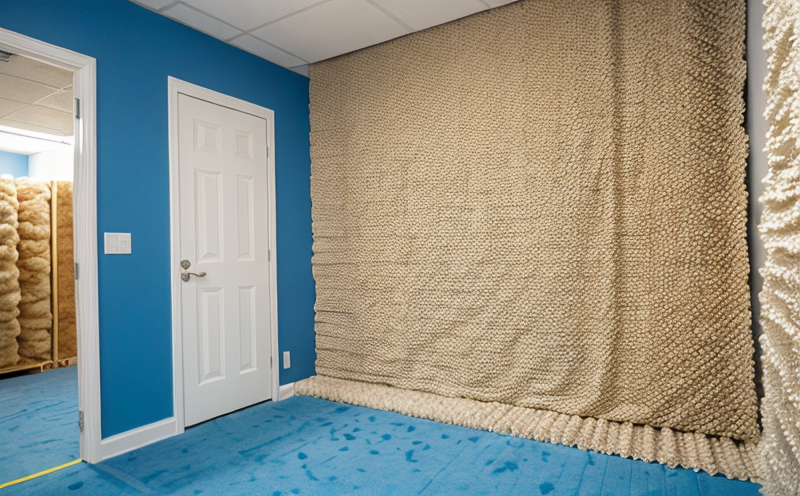ISO 717-3 Evaluation of Sound Insulation for Special Buildings
The ISO 717 series is a comprehensive set of standards designed to evaluate and measure sound insulation in buildings. Among these, ISO 717-3 specifically addresses the evaluation of sound insulation for special buildings. This service is crucial for ensuring that structures like schools, hospitals, theaters, and other environments with high acoustic requirements meet stringent noise reduction standards.
Special buildings often have unique acoustical challenges due to their specific functions and needs. For instance, a school requires low background noise levels to facilitate clear communication between teachers and students, while a hospital demands minimal sound transfer from one ward to another to ensure patient rest and privacy. ISO 717-3 provides the framework for testing these buildings' ability to insulate against unwanted sound transmission.
The process involves measuring the amount of sound that passes through the building elements under controlled conditions. This includes walls, floors, partitions, and even ceilings. The test setup typically consists of a standardized room configuration where noise is introduced on one side, and its passage or reflection is measured on the other. This helps in identifying any weak points in the acoustic design.
The acceptance criteria for ISO 717-3 are based on performance levels that must be met to ensure compliance with regulatory requirements. These levels vary depending on the type of building and its specific use. For example, a hospital might have stricter standards than a shopping mall due to the sensitive nature of patient care.
Understanding these nuances is key for effective testing and reporting. Our team ensures that all aspects of the test are conducted meticulously, from specimen preparation to final analysis. This meticulous approach guarantees reliable results that can be trusted by stakeholders involved in the construction or renovation process.
In summary, ISO 717-3 Evaluation of Sound Insulation for Special Buildings is essential for achieving optimal acoustic performance in specialized environments. By adhering to these standards, we contribute significantly towards creating healthier and more comfortable spaces tailored to individual needs.
Industry Applications
The application of ISO 717-3 extends beyond mere compliance; it plays a pivotal role in enhancing the overall quality of life within various sectors. In educational institutions, this test ensures that classrooms are not only functional but also conducive to learning without unnecessary distractions caused by ambient noise.
- In healthcare facilities, it helps maintain a serene atmosphere crucial for patient recovery.
- Theaters and concert halls benefit from reduced echo and reverberation times, improving sound clarity.
- Office buildings enjoy improved concentration levels among employees thanks to quieter interiors.
By ensuring that these spaces meet the specified ISO 717-3 criteria, we contribute to a more harmonious environment where everyone can thrive. This not only enhances user satisfaction but also supports broader sustainability goals by reducing energy consumption associated with artificial lighting and heating due to better thermal insulation.
Eurolab Advantages
At Eurolab, we pride ourselves on providing top-tier services that exceed industry expectations. Our commitment to excellence translates into several key advantages:
- Comprehensive Expertise: Our team comprises experts with extensive experience in acoustic testing.
- State-of-the-Art Facilities: Equipped with the latest equipment and technology, ensuring precise measurements.
- Accurate Reporting: Detailed reports provide clear insights into test outcomes.
- Dedicated Support: Continuous support throughout the testing process ensures smooth operations.
We stay ahead of regulatory changes to ensure our services remain compliant and up-to-date. This proactive approach allows us to anticipate challenges and offer solutions tailored to each client's unique requirements.
Why Choose This Test
- Regulatory Compliance: Ensures adherence to international standards, which is critical for project approval.
- Enhanced Performance: Identifies and rectifies any shortcomings in acoustic design early on.
- User Satisfaction: Creates environments that are more comfortable and conducive to productivity.
- Cost Efficiency: Prevents costly rework by addressing issues during initial stages of construction or renovation.
- Sustainability Benefits: Reduced need for artificial lighting and heating due to better insulation.
- Client Confidence: Reliable, accurate results build trust among all parties involved in the project.
The benefits extend far beyond mere compliance; they contribute to creating spaces that are not only functional but also optimized for user experience. Choosing this test means investing in long-term success and satisfaction.





